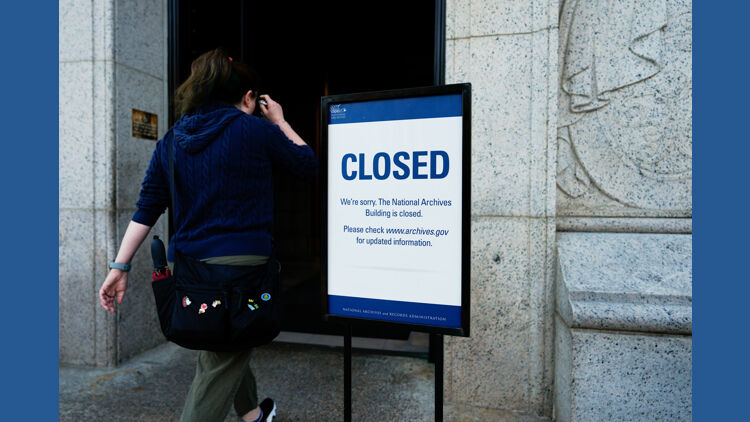Colorado lawmakers advance bill requiring driver deactivation policy, disclosure by rideshare firms

A bill that would require companies like Uber and Lyft to disclose how rideshare fares are distributed and clarity on where drivers are headed cleared its first committee hurdle this week.
With Republicans on the Senate Business, Labor and Technology Committee wondering whether the state should step into the issue, bill sponsors agreed the bill will need fine-tuning before it advances to the Senate floor.
Senate Bill 075, sponsored by Senators Kevin Priola, D- Aurora, and Robert Rodriguez, D- Denver, requires transportation network companies, or TNCs, such as Uber and Lyft, to disclose specific information to their drivers about the distribution of fares between the driver and the company.
It also requires TNCs to develop a driver deactivation policy, which must be communicated to drivers by May 1, 2025. Additionally, under the bill, TNCs would be required to regularly disclose data on driver deactivations to the Department of Labor’s Division of Labor Standards and Statistics starting in August 2026.
Several rideshare drivers testified that there is a lack of transparency from their employers, particularly concerning information like trip compensation, ride distance, and direction of a rider’s destination.
Meanwhile, representatives of ridesharing companies raised questions about the bill’s deactivation provision, saying it raises safety and liability implications. They also called the measure incomplete, adding it “unnecessarily rushes the process.”
During the hearing, one driver recounted how he accepted a ride in Denver — only to find out he had to take the passenger to Colorado Springs.
He said he didn’t know he would have to make the hour-plus trip until the rider was already in the car, and he didn’t know how much he would be compensated for the trip until after the passenger was dropped off.
According to Nina DiSalvo of Towards Justice, after accounting for expenses like gas and time spent driving between customers, which is unpaid, the average rideshare driver in Denver makes $10.50 per hour — less than the state minimum wage.
Mar Galvez Seminario of the Colorado Organization for Latina Opportunity and Reproductive Rights said this disproportionately affects people of color in low-wage jobs. Seminario said they constitute most of full-time gig workers.
“A person’s time and work should be valued no matter what the job is,” Seminario said. “Many of these workers have families to care for and odd hours to work to make ends meet.”
Sophie Mariam of the Colorado Fiscal Institute said rideshare companies can claim 40% to 70% of a rider’s fare. She suggested that if this percentage were reduced to 25%, drivers could potentially earn an additional $10 per hour.
“Transportation is a service drivers provide for consumers, but as it stands right now, in order to provide this service, we as drivers operate at a disadvantage,” rideshare driver Abe Brennan said during his testimony in favor of the bill.
Gig companies like Uber, Lyft and DoorDash deny drivers crucial information before they accept a ride, Brennan said.
“Information like distance, direction, and fare price,” Brennan said. “Can you think of any other service provider who would take jobs under these conditions? Of course you can’t.”
“Frankly the idea is ludicrous. But that’s what us drivers have to do almost every time we accept a ride. This bill addresses and helps rectify the unfair outcomes that result from this lack of transparency and accountability that gig companies currently enjoy,” Brennan said.
Representatives from both Uber and Lyft, who testified during the hearing, said they have worked with the bill’s sponsors and stakeholders over the past few months. Compromises were reportedly reached on both sides to ensure all parties involved agreed on the legislation, but both companies said no discussions were held regarding the bill’s section on deactivation.
“Our expectation is that this missing section could have safety and liability implications, not to mention a sizable fiscal note,” said Harry Hartfield of Uber.
While Uber does not oppose involving a third party to facilitate the arbitration and appeals processes should a deactivated driver choose to pursue them, he stressed the importance of aligning the bill’s language with the company’s preferences.
Lyft’s John Walker opposed the bill in its current form, urging an amendment to include more information about the deactivation process.
“We worry that advancing this bill in an incomplete form unnecessarily rushes the process and may lead to major challenges ahead similar to last year,” he said.
Mariam agreed that the deactivation process is a pressing issue, citing a 2022 study that found that 15% of rideshare drivers in Denver reported being deactivated from their app and one in five said they had been discriminated against because of their identity.
“Preserving dignity at work and fairness for consumers requires that the gig economy must be subject to the same rules of the game that every other industry follows,” she said.













